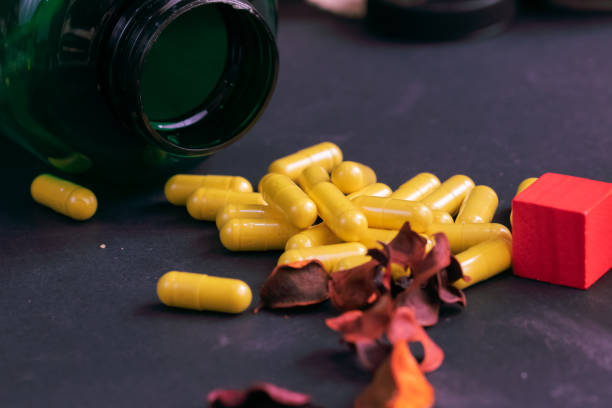Berberine is a compound found in plants. It has a bitter taste and a bright yellow colour and is available as a supplement. Berberine in supplement form has been used in traditional Chinese and Ayurvedic medicine for several years to make changes in body cells and treat many metabolic health conditions like diabetes, heart problems, high cholesterol, PCOS, obesity and more. It also treats bacterial infections such as sepsis, meningitis, pneumonia, etc.
Dosage
Berberine is found in some natural foods, but if you can’t get it adequately from your diet you must take it as a supplement. It is sold in various forms, including liquid, capsules, tablets, and powder. It is also available as eye drops and topical gels, but these are less common.
The standard dosage for berberine is between 900 to 2000 mg daily; it is taken in 3 to 4 doses per day and should be taken with or after a meal.
However, there is no guarantee of the effectiveness of this supplement; most people have to take it for several months before seeing notable results. Speak with a healthcare provider to find which form and dose of berberine is more suitable for your condition.
Side Effects of Berberine
Berberine does not have side effects in most people when taken in recommended doses. Still, too much of it can cause some mild gastrointestinal problems, and most of the common side effects usually resolve on their own within the first few weeks of use.
These side effects include:
- Nausea.
- Loss of appetite
- Constipation.
- Vomiting.
- Abdominal pain.
- Diarrhea.
- Gastric ulcers.
- Gas.
Precautions
This supplement is considered safe for most healthy adults, but it is unsafe for pregnant women as it can harm an unborn baby. It is also not recommended for breastfeeding mothers because it can be transferred through breast milk to an infant.
In newborn babies, berberine can cause jaundice, which can lead to a rare type of brain damage called kernicterus. However, there aren’t enough studies to determine if it is safe for older children.
Berberine may also cause the liver to slow down bilirubin removal. So, it is best to consult your doctor before taking this supplement for any condition.



